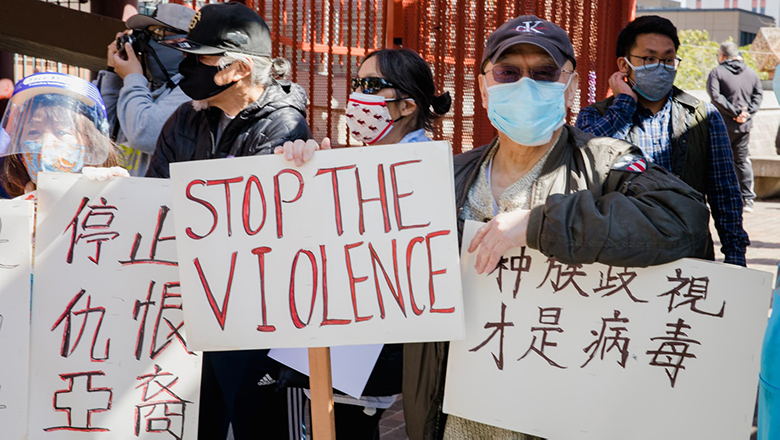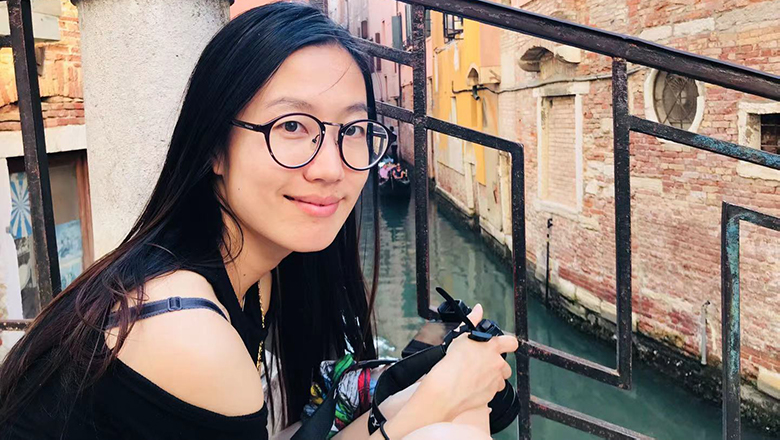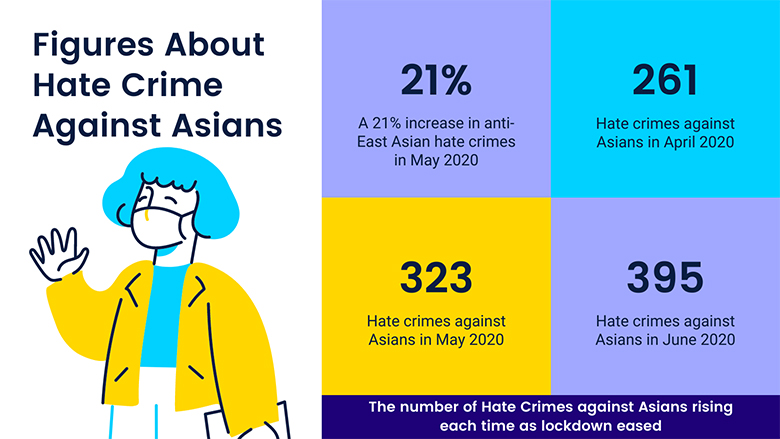The death of eight Asian people in a mass shooting in Atlanta showed a racial issue in America. But the rising Anti-Asian violence is a problem across the world.

Last July, Jing Han went on her weekly shopping trip when a group of young people circled around her on their bikes. They whistled at her and put a middle finger towards her. Jing Han was shocked and offended, she went into the market quickly and tried to ignore the rude noise outside.
“I think the racism against the Asian community, specifically against Chinese, East Asians and South-East Asians in the UK, has become even more severe since last summer,” said Jing Han. “Because I have never experienced anything like this before the pandemic.”
She also found that a lot of friends around her had also suffered from xenophobic bullying. She said: “My friend’s neighbour plays music noisily, every night, so my friend suggested to her neighbour to be quiet at night, cause she has a baby to look after. But the neighbour shouted at her to go back to China, offensively.”
Before the racial hate crime in Atlanta, Jing Han only discussed racial discrimination issues with her friends personally. But the mass shooting in Atlanta shocked her and stimulated Jing Han to stand up against racism in public.
“The increasing number of hate crimes about Asians is not an illusion, it is reality”, she said.

Covid-19 is not the only reason for increasing Asian-Hate Crime. Many people attribute the rising racial hate against the Chinese and Asian community to Covid-19. However, the pandemic is just a fuse of this massive racial discrimination. Some politicians should be accountable.
“Since the start of the pandemic, reports of xenophobic bullying started to come out into grassroots media outlets,” said Leila Usmani, the Project Development Worker of Race Alliance Wales. They’re a collective that work for achieving race equality in Wales.
She adds: “More recently in the mainstream media, new reports have been arising lately of a rise in specifically xenophobic hate crimes due to the way in which the media correlate the Coronavirus with China.”
It is not news that Donald Trump, the former President of the U.S. and his Secretary of State, Mike Pence, called Coronavirus the “Chinese Virus” and “Wuhan Virus” in public. It made Chinese people become the scapegoats of this pandemic and the target for some people to attack.
The data from Moonshot shows that the number of tweets that contained hate speech about Chinese from February to April last year is over 200,000. The number of hashtags about discriminating Chinese people on Twitter and Facebook increased three times as much as the previous year.

Asian-Hate is also a problem in Cardiff. On March 22nd, Hengyu Zhou, an international student from China, went to the city centre to buy a cup of coffee with her friend. She could not predict that she would suffer racial discrimination again.
“It is at least the second time that I suffered racial discrimination,” she said. “The first time was in November last year, the first day I arrived in Cardiff, a man shouted ‘F**k off’ at me and my friends.
“The second time was yesterday afternoon, when I went to a coffee shop with my friend, and a drunk woman shouted ‘Chinese Virus’ at us loudly.”
Living in Cardiff for less than six months, Hengyu has faced racism two times, and is making her feel unsafe and sad.
The data from police forces across England and Wales shows that the number of assaults, robberies, harassment and criminal damage against Chinese people from January to March is 267, which is about three times of the previous year.
However, the racial discrimination cases like Hengyu faced are not be added into racial hate crimes, because she did not call the police. It means the 267 racial hate crimes across England and Wales are only the tip of the iceberg, and that the real figure is much higher.
“Chinese traditional education did not teach us how to fight against racial discrimination and fight for our equality,” said Jing Han.
“We lack opinion leaders to support our community in public. Most of the time, we suffer through racial hate crime because we worry about retaliation, and we choose to keep silent.”
The tragedy that happened in Atlanta reminded Jing Han to stand out and support campaigns about stopping Asian hate crime on social media.
She wrote on her Facebook: “Every time the irrational language and behaviour Asian people ignored could possibly evolve into harm to us one day. Let’s say NO fearlessly to further harm and stay connected to support each other. If it is not now but when?”
Hengyu also reported her experience of suffering racial hate in Cardiff on her Twitter account. She said:” I think we should report the racial hate that we underwent, we should not keep silence, it is time to speak up for ourselves.”
Leila also mentioned the importance of campaigns, such as Black Lives Matter.
“2020 and the resurgence of Black lives Matter activism have given many more racialised people the confidence to come forward with their experiences, in public, in the workplace, in education, in services they consume and online,” she said.
Only the victims of racial hate crime and racial discrimination report their experience, emphasis the importance of racial equality, can the public and government pay attention to these problems.
“The increase in this reporting and confidence in challenging racism from the direct sense to the systemic institutional sense has meant that its prevalence can no longer be ignored,” Leila said.
“Once it cannot be ignored, policymakers can no longer ignore the need to address it head-on.”
